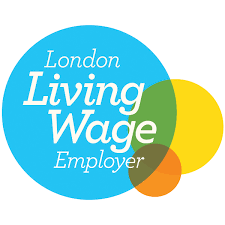
So now the dust has settled on the March budget, what impact - if any - will it have on small businesses? Hailed by George Osborne as his long term economic plan, he described it as “‘a budget that backs businesses’”. The full measures are outlined on the Gov UK website but let’s take a quick look at three of the key measures affecting businesses:
1. Funding for Small Businesses
One of the key developments announced by Osborne is that the government is committing £1 billion to support the growth of small businesses. The money will be handled by the British Business Bank (BBB). The BBB is a government-owned business development bank whose aim is to ensure that finance markets work effectively to provide funding for small businesses whatever stage they are at. So whether business funding is needed for starting up a new business, scaling up an existing business, or more strategic development to stay ahead, help may be available.
As part of the budget initiative, the BBB will work with regional and local authorities to help invest in local small businesses. A new Help To Grow programme is being launched with at least £200m of lending being available to fast-growing small businesses seeking expansion loan investment of between £500,000 and £2 million . The BBB has also agreed to extend its Enterprise Finance Guarantee programme, enabling some small businesses to access the finance needed for sustained growth until at least 2018.
2. Regulation of small business funding platforms
All well and good. But what about those businesses that are currently considerably smaller than the numbers mentioned above? One positive measure is that there is to be more government regulation of small business funding platforms such as Bizfitech, Funding Options and Funding Xchange. The idea behind this is to enable smaller businesses that have been declined for finance by banks to find reputable alternative finance providers.
Many entrepreneurs struggle to raise small business funding and this can restrict sustainable growth. They may not tick all the boxes to satisfy mainstream lenders but when they look into how to get a business loan from alternative lenders they may find that there are hidden charges and fees that make the total overall cost of the loan unclear - and perhaps more expensive than it should have been.
3. Payments required from small businesses
Tax-free allowances
From April 2017 there will be two new tax-free £1,000 allowances. One is for selling goods or providing services and the other is for income on any property you own. This means that if you make up to £1,000 from occasional jobs or selling goods you have made, you will no longer need to pay tax on that income.
Cuts to business rates
Also from April 2017 the small business rate relief will double, increasing from £6,000 to £12,000. This means that if your small business occupies property with a rateable value of £12,000 or less you will pay no business rates. For properties between £12-15,000 there will be tapered rate relief on properties. The overall impact of this is that from April 2017 around 600,000 businesses will pay no rates.
Scrapping of Class 2 National Insurance Contributions for the self-employed
From April 2018, Class 2 National Insurance Contributions (NICs) for self-employed people will be scrapped. This means that if you are self-employed you will only need to pay Class 4 National Insurance if you make a profit of £5,965 or over per year.
So, does this budget back businesses? Certainly the combined impact of potentially more money available to - and reduced government demands from - small businesses could be a positive move. Time will tell. Close to our hearts at Fair Business Loans is the long overdue recognition that small business funding does need to be fair. Unless deserving companies can obtain quick business loans that are clear and above board, and lenders treat each case individually rather than sticking to rigid algorithms, businesses will not be able to achieve their full potential. That is what is not fair. But has this “‘budget that backs businesses’” done enough to put us back on the right track?




